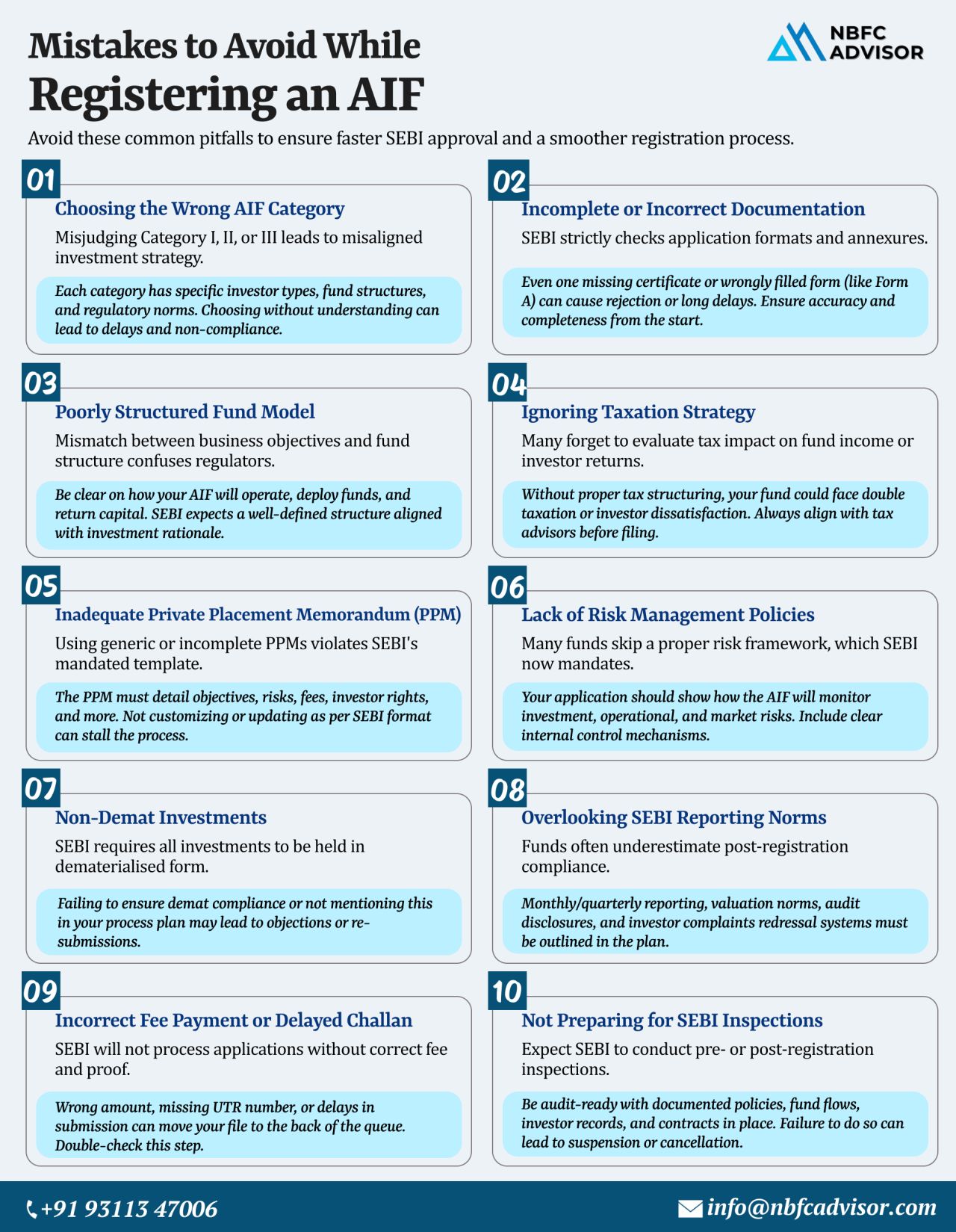Blog Title: Top 10 Mistakes to Avoid When Registering an AIF
Setting up an Alternative Investment Fund (AIF) in India can open doors to diverse investment opportunities—but navigating the registration process with SEBI isn’t as straightforward as it may seem. Even minor mistakes can lead to delays, rejections, or compliance issues down the line.
Here are the top 10 common mistakes to avoid when registering an AIF:
1. Incorrect AIF Category Selection
Choosing the wrong category (I, II, or III) can lead to regulatory mismatches. Your fund's strategy must align precisely with SEBI’s definitions to avoid future compliance headaches.
2. Incomplete or Inaccurate Documentation
Documentation is the backbone of your application. Errors or missing information in key documents like the trust deed, investment strategy, or agreements can result in resubmissions or outright rejection.
3. Unclear or Mismatched Fund Structure
Inconsistencies in the fund’s legal and operational structure—whether trust, company, or LLP—can raise red flags. Clarity and internal consistency are critical.
4. Lack of Taxation Planning
Failure to assess the tax implications for both the fund and its investors can lead to unexpected liabilities. Professional tax planning should be integrated during the setup stage.
5. Generic or Outdated Private Placement Memorandum (PPM)
SEBI expects a customized, up-to-date PPM that accurately reflects the fund’s objectives, governance, risks, and investor rights. Copy-paste templates can cause delays.
6. Missing Risk Management Framework
SEBI emphasizes risk controls, especially for Category III AIFs. A vague or missing risk management policy may lead to objections during evaluation.
7. Non-compliance with Demat Requirements
AIFs are required to issue units in dematerialized form. Failing to integrate with depositories like NSDL or CDSL is a common mistake many make.
8. Ignoring SEBI’s Ongoing Reporting Norms
Post-registration, AIFs must follow strict quarterly and annual reporting. Lack of awareness or preparation for these requirements can result in penalties.
9. Incorrect Fee Payment or Delayed Challan Submission
Administrative oversights like wrong fee amounts or late challan uploads can delay your application unnecessarily. Always double-check before submission.
10. Not Preparing for SEBI Inspections or Audits
Even after registration, SEBI may conduct inspections. Inadequate compliance practices or poor documentation can affect your credibility and lead to sanctions.
✅ Pro Tip: Be SEBI-Ready from Day One
A smooth registration process starts with strategic planning, expert documentation, and a deep understanding of SEBI’s expectations. Avoid these mistakes, and you’re already ahead.
📞 Need help registering your AIF?
Our expert team offers end-to-end support—from structuring and documentation to SEBI interactions and compliance.
👉 Contact us today for a free consultation.
📞 +91 93113 47006

